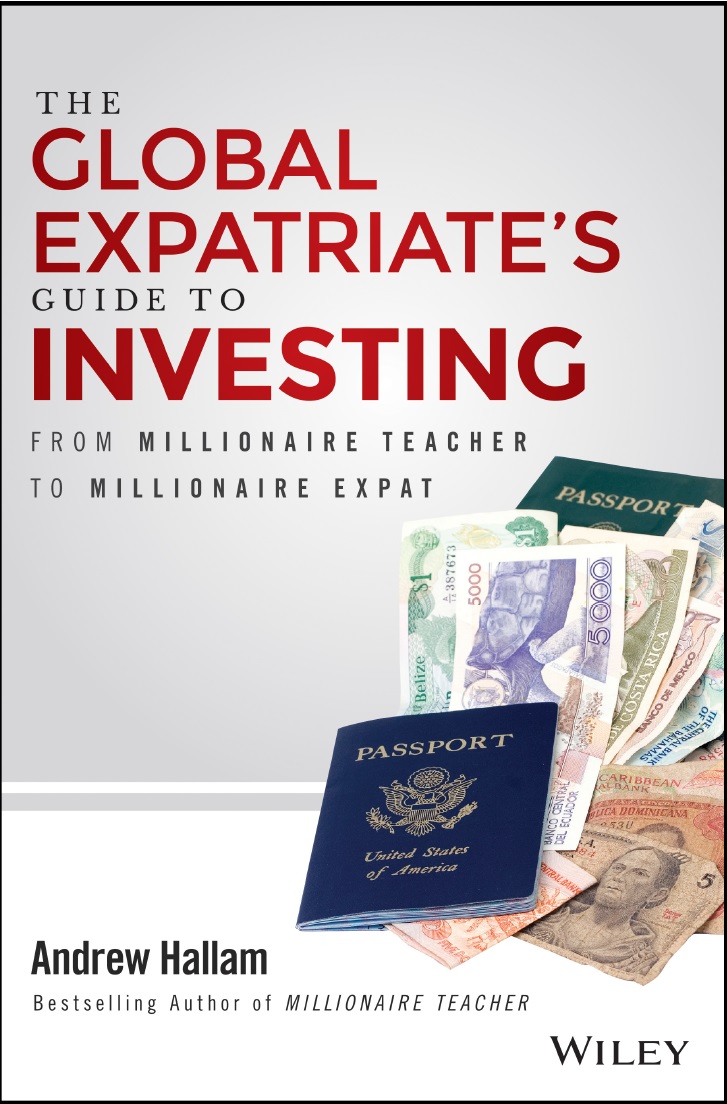
One of the largely unspoken benefits of living as an expat in a country with a substantially lower cost of living than the one you left behind is that a savings plan unfeasible in your home country is easily attainable in your expat life. Expats with attractive compensation packages can, without much difficulty, save considerably more than they spend each month. It’s not unheard of for dual-income expat households to actually be socking away as much as US$100,000 a year in their savings accounts.
However, leaving your home country for an overseas assignment or long-term getaway can have dire consequences on your retirement plans, and most expats will need to plan and invest more effectively than their home country counterparts who are working and paying into the social system there. Many expats do not have a pension, nor do they have a viable plan for a solvent retirement. Some expats even suffer from “expatitis” – a condition that, while pleasant, can be financially debilitating in the long run, as those afflicted by it get addicted to five-star getaways, luxury indulgences, expensive dining, and more. They see their expat life, especially if buoyed by a nice financial package, as a long holiday of sorts, even though they are working. However, whether you suffer from “expatitis” or simply hope for a better retirement than you could afford in your home country, retiring as an expat requires some creative strategies.
Bestselling author Andrew Hallam, who authored The Millionaire Teacher, has followed that up with an outstanding book on making the most (at least financially speaking) of your expat experience, The Global Expatriate’s Guide to Investing. There is a great deal of upfront information early on, while the final third of the book has specific chapters dedicated to expats from different parts of the world, which is immensely helpful as the investment advice is specifically tailored to expats hailing from the US, Canada, Australia, the UK, Australia, New Zealand, or South American and Africa. Additional chapters advise on investment strategies for those from Europe or Asia. Sandwiched between these two parts of the book – the broad overview and the specific investment advice – is the meat of the book, perhaps the most important of which is contained in three chapters. One chapter, “Don’t Climb into Bed with a Silver-Tongued Player”, describes dangers and pitfalls in the investment world, and clearly outlines how to avoid them. Plenty of narratives and anecdotes give the novice investor reading this book the benefit of learning from others’ mistakes. The other two chapters, “Couch Potato Investing”, and “The Permanent Portfolio: Growth Without Risk”, lay out simple investment methods that work.
This is an easy-to-understand and even entertaining book (though still filled with its fair share of financial terms and tables), and explains to expats just how much they should be saving and investing in order to meet their goals for a comfortable retirement. The author outlines how to set up and manage an effective portfolio, while avoiding falling into predatory traps set by unethical financial advisors, whose plans seem more designed to fatten their wallets rather than yours. This is important because the high cost of typical fees and transaction costs can seriously erode investment gains. In the book, Jack Meyer, who leads Harvard University’s endowment fund, is quoted as saying, “The investment business is a giant scam. It deletes billions of dollars every year in transaction costs and fees.” As an example, if you’re paying the seemingly paltry sum of 2% in asset management fees and the markets deliver a 6% return in a given year, you’ll have given away a whopping 33% of your profits. Obviously, over time, this can severely impact your financial goals, so it’s unsurprising that this book dedicates a sizeable number of pages to educating the reader on how to recognise and avoid such schemes.
There is far more information in The Global Expatriate’s Guide to Investing than can be adequately summarized in this review, but suffice it to say, this is a book well worth seeking out. Expats have unique investment requirements, and with over a decade of personal experience as an expat, Andrew Hallam delivers his financial acumen with authoritative, firsthand knowledge. Even if you’re arriving late to the investment game, read this book. You’ll learn how to make sound, strategic investment decisions that, while perhaps not netting the sizeable nest egg of those who start investing at 25, will still afford you a greater degree of flexibility in later years. And really, that’s what it’s all about: Financial freedom quite simply gives us the ability to approach life more on our terms, with a degree of flexibility to make decisions based on what we want to do, rather than what we have to do. The Global Expatriate’s Guide to Investing can help to set you on that path.
The Global Expatriate’s Guide to Investing, 303 pages (hardcover), is available at major bookstores in Malaysia.
Read more:
- Book Review: Jolly Good Lah!
- Book Review: Home-baked Breads
- Book Review: History of the Dutch in Malaysia
What are your thoughts on this article? Let us know by commenting below. No registration needed.
Source: The Expat Magazine December 2014
"ExpatGo welcomes and encourages comments, input, and divergent opinions. However, we kindly request that you use suitable language in your comments, and refrain from any sort of personal attack, hate speech, or disparaging rhetoric. Comments not in line with this are subject to removal from the site. "

















